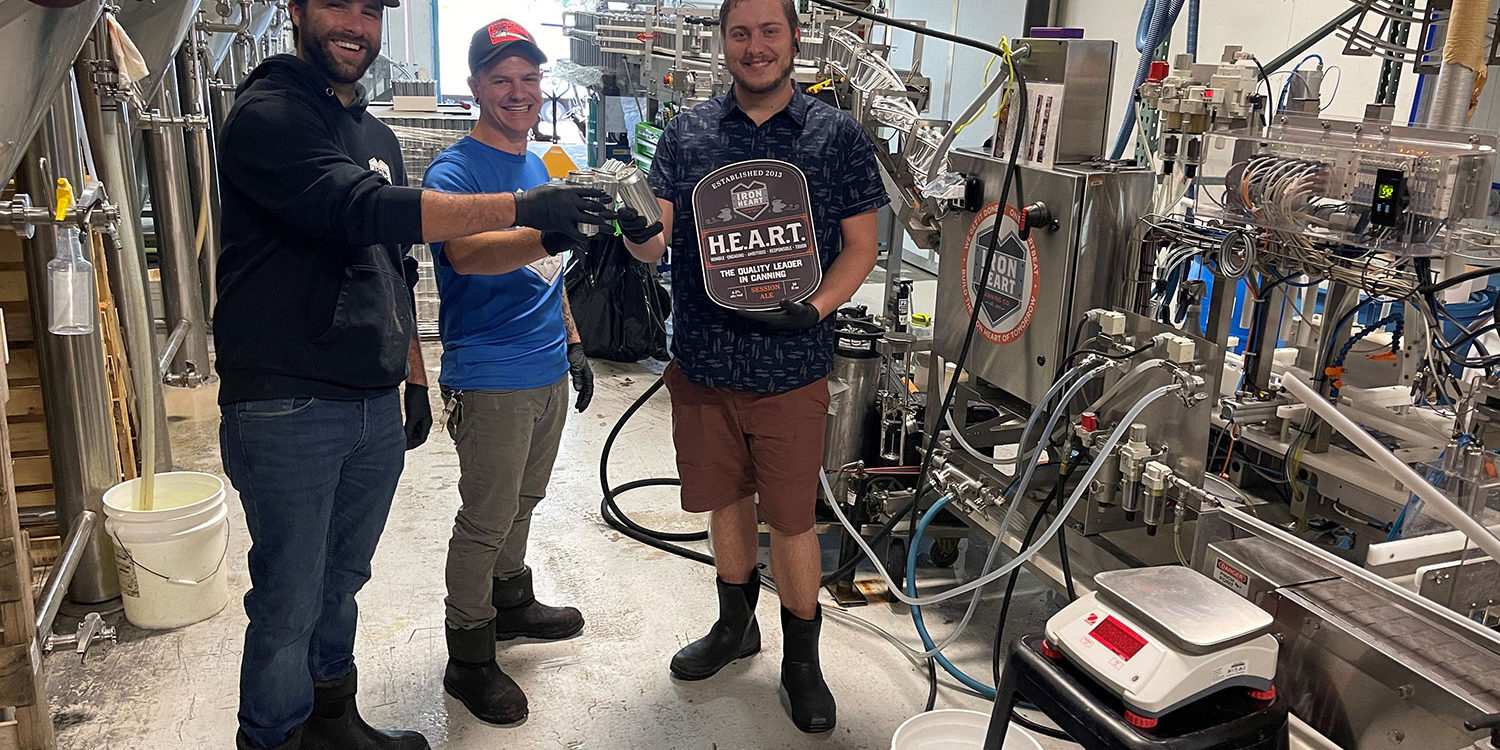There is no better business model than selling the beer you brew over your own bar. If you are a relatively small operation, that model is now tried and true but it comes with substantial limitations. Recent years, including a pandemic that shut down tap rooms around the country, have taught small and medium sized breweries that it is wise to diversify their revenue streams. Let’s take a look at when it makes sense to consider hiring a mobile canning service to help grow your business.

Packaging featured expert topic supported by California Craft Brewers Association
The 2024 California Craft Beer Summit is the most important event of the year for California Brewers or anyone interested in building their business in the craft beer industry. The 2024 Summit will be held in Sacramento on March 12-14, 2024.
Poised to celebrate its tenth anniversary, Iron Heart Canning helped craft breweries package more than 80 million cans in 2022. Iron Heart’s operation now runs more than 80 mobile canning lines servicing 29 states from the entire Eastern Seaboard to parts of the Upper Midwest. Roger Kissling, vice president of sales and marketing for Iron Heart, has plenty of advice to offer small and medium sized breweries looking to expand their operations and packaging options.
Kissling estimates that Iron Heart has worked with more than a thousand breweries in its history and he conducts exit interviews with breweries when some eventually decide to buy their own packaging lines. “I always ask, ‘if you could have done one thing different, or we could have done something different, what would that have been?’ The repeat answer that I always get is, ‘looking back on it, I wish I had canned earlier,” Kissling says.
He admits that having a business plan centered around the taproom offers the best margin but believes breweries should not stop there.
“The feedback I received was that when you start canning, you build your brand. You’re not going to make the same money on that pint or four pack of pounder cans. But people take that packaged product, they bring it home, they put it in their cooler at a barbecue, the neighbors come over and open it up and what do they see, but they see XYZ brewery doing something cool, putting great liquid into cans, and then then they go back, and go check them out. And they find them and then they go to the taproom. So you don’t sacrifice sales, but what you do is offer the best business cards you have going out into the market.”
What About Cost?
The first question most potential brewery customers ask Kissling about is price and minimum order quantities (MOQs). “People are trying to get the economics to work and different mobile canners do things in different ways,” Kissling says. “Some have lower MOQs, some have slightly higher MOQ’s, some don’t really have MOQs.” Iron Heart has a minimum daily service charge but does not set a minimum daily volume. The company will come out and run a small volume of cans but that might be expensive for many breweries. However, Kissling says that breweries do not have to package 30 barrels at a time to make the numbers work. “A great place to start is somewhere in the 150 to 200 case runs [for 16 ounce cans],” he counsels.
Kissling also suggests that breweries consider packaging different styles during the canning session. “It’s a good spot from both the mobile canner’s perspective and the brewer’s perspective,” Kissling says.
Questions to Ask Your Mobile Canner
Kissling suggests breweries looking to hire a mobile canning service ask a series of questions before they commit. What do you guarantee and what do you not guarantee? What are your QC checks? Can you explain all of your QC checks? How do you verify sanitation? How do you check seams and verify that seams are going to be within spec? And what happens if they’re not? “Those are big questions to ask because those are some common things that could go wrong with the canning process,” Kissling says.
Kissling also suggests asking about how the brewery can best prepare for canning day. The first question relates to space. “We are mobile so we can shoehorn into some pretty small spaces but it doesn’t mean we can fit into a closet,” Kissling notes. “So we do require a certain amount of floor space and it is a wet process.”
Kissling also suggests your mobile canner should be helping you prep for the process. “Your mobile canner should be working very hard to prepare the customer,” he says. “For packaging day, we have a really regimented process at Iron Heart where we have a site visit by a sales manager, then a site visit by somebody in operations who will be there on packaging day, because mobile canning requires a lot of things to come together, especially on the first canning run for success.”
“The biggest thing that the brewery can do is have the product at an agreed upon spec for both temperature and carbonation and deliver it that way to us on packaging day,” Kissling says. “If the brewery can do that, and they can be ready for us, then the mobile canner who does it every day should be able to take over. And we’re off to the races and we’re going to have a great day.”
Securing Cans
Breweries often ask Iron Heart about who provides the packaging materials and Kissling has a ready answer. “As you can imagine, it’s important that we can be a one stop shop,” he says. “So we do offer materials sourcing and logistics for anybody that wants to use them. We offer really competitive rates on dropship quantities. By the half pallet, or lower cost savings are possible with bulk can purchasing all the way up to full truckload options.” Breweries are also welcome to source their own materials. “It’s not a requirement of our service, we want to be canning experts. If our customers have a material sourcing relationship that they like, or for whatever reason, they’re able to leverage some other relationship that they have to get better pricing, that’s perfectly fine.”
Kissling suggests that if breweries have any further questions, they should reach out to their mobile canning service. Most should be able to provide a margin calculator to address the various financial factors in the decision whether to hire a mobile canning service.
